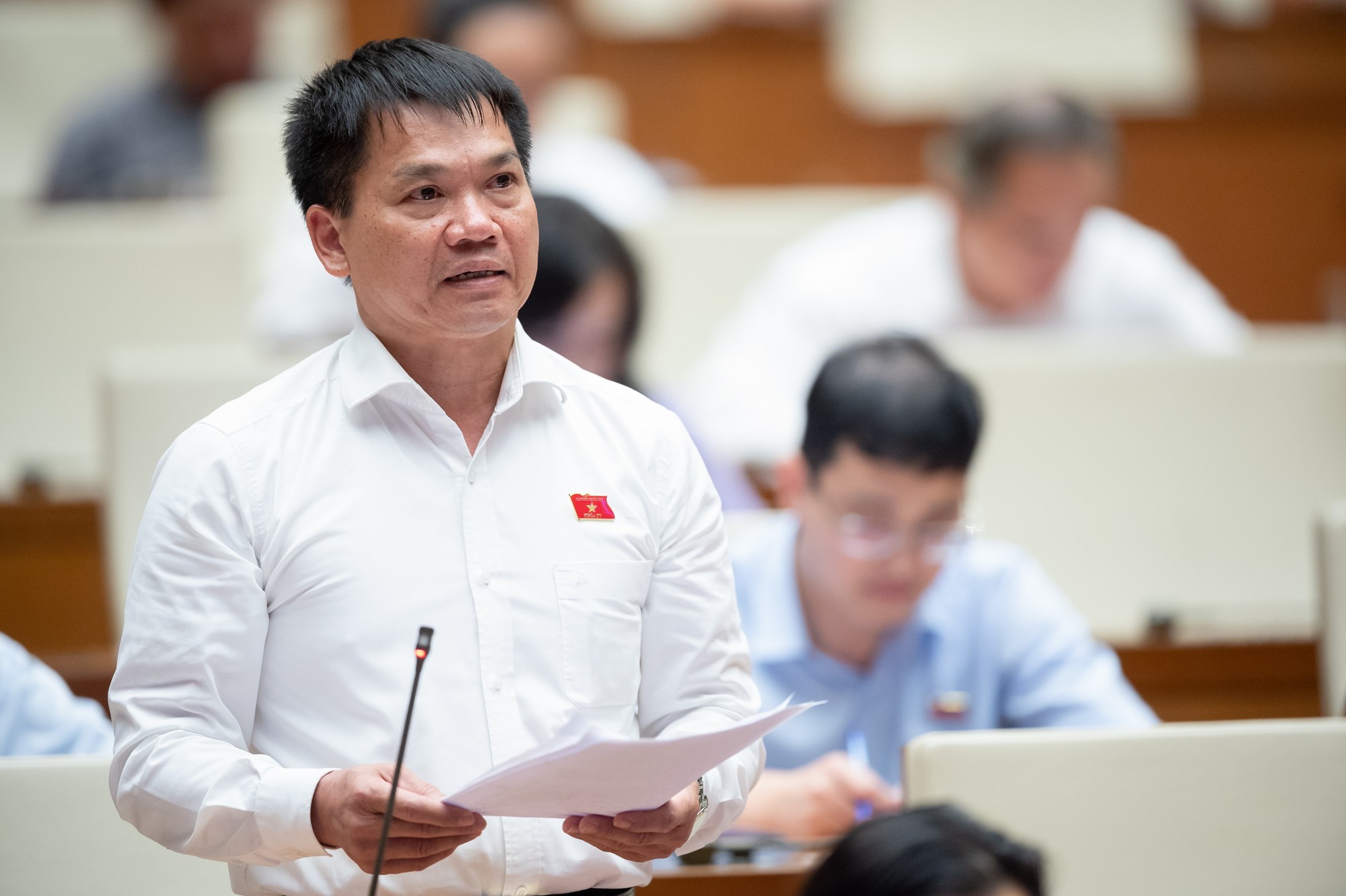
Delegate Duong Khac Mai (Dak Nong delegation)
Voters suggested moving the power line out of the city to create more space for socio -economic development, ensure aesthetics and ensure the health, life and living safety of the people.
"Many voters have reported that when it rains, when power lines pass through low-lying areas near the road, many people get electrocuted to varying degrees, especially when riding motorbikes. Here, delegate Pham Thi Kieu was also electrocuted," said Mr. Mai.
Informing that this proposal was reported by the Petition Committee to the National Assembly at the opening session of the 3rd meeting, Mr. Mai continued to recommend that the authorities soon move the 500 kV power line out of Gia Nghia City.
Notably, delegate Mai also expressed concerns about the quality of some response documents. He cited a set of responses to Dak Nong voters' petitions after the 2nd extraordinary session of the 15th National Assembly on a specific content of the province, but referred to data and documents from another province, not Dak Nong province.
In the past, the local opinion groups sent to the Government, ministries and branches have reached a consensus in their responses. In a few cases, a common issue requires a synchronous and comprehensive response, avoiding the case where the response is only partial and does not cover everything.
For example, when Dak Nong voters petitioned for wind power projects to be stuck, the Ministry of Industry and Trade responded, but regarding compensation, the Ministry of Industry and Trade suggested sending questions to the Ministry of Natural Resources and Environment and the Ministry of Justice, which was very time-consuming and did not have time to answer voters in the next meeting.
General answer, no specific roadmap
“Some responses are general and informative, without any solutions to thoroughly resolve the problems and concerns. The responses only state “will” and “soon” without a specific, clear roadmap, causing voters to continue to make suggestions and concerns,” Mr. Mai shared.
Expressing a similar opinion, delegate Trinh Xuan An (Dong Nai delegation) said that the Government and the National Assembly are determined to make efforts to resolve voters' petitions, but he is concerned about the quality of responses to voters' petitions.
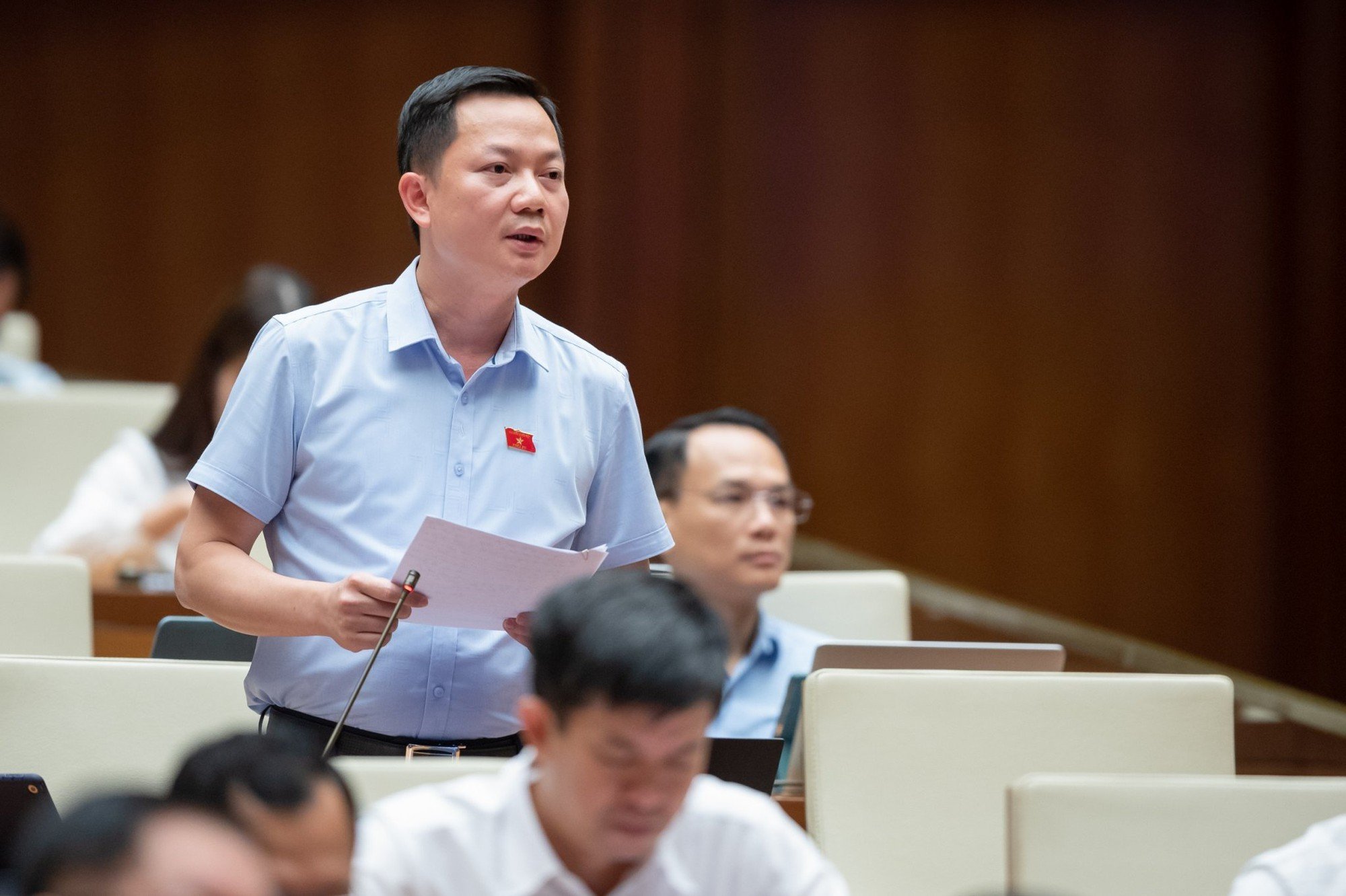
Delegate Trinh Xuan An (Dong Nai delegation)
“The data sent to government agencies, ministries and branches shows that 2,466/2,469 voters’ petitions were answered. However, the vast majority of responses to voters’ petitions, as analyzed by delegate Mai, were explanations and information provision,” said Mr. An.
The Dong Nai delegation said, “Responding to petitions is good, but how to respond needs to be evaluated more carefully.” The petitions sent by voters and localities to ministries, branches, and the Government are still being responded to in a procedural and legal manner, which is difficult to meet the voters’ expectations.
“There needs to be criteria for evaluating responses. How to respond to resolve work, not respond to know,” Mr. An said, raising the issue of which agency needs to be assigned to monitor the case, monitor data, and evaluate; thereby improving the quality of monitoring and resolving voters’ petitions.
Previously, the National Assembly Standing Committee's report on monitoring responses to voters' petitions also stated that some voters' petitions had not been promptly resolved due to the lack of close coordination between ministries and branches or between ministries and branches and localities.
Source link


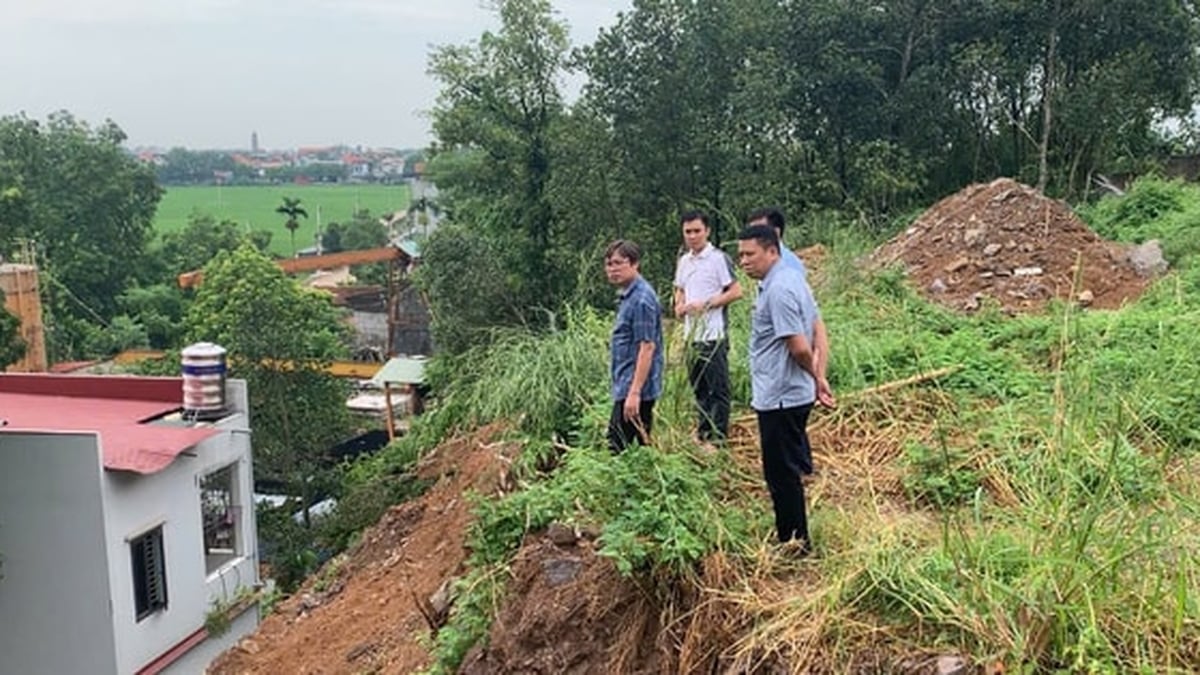
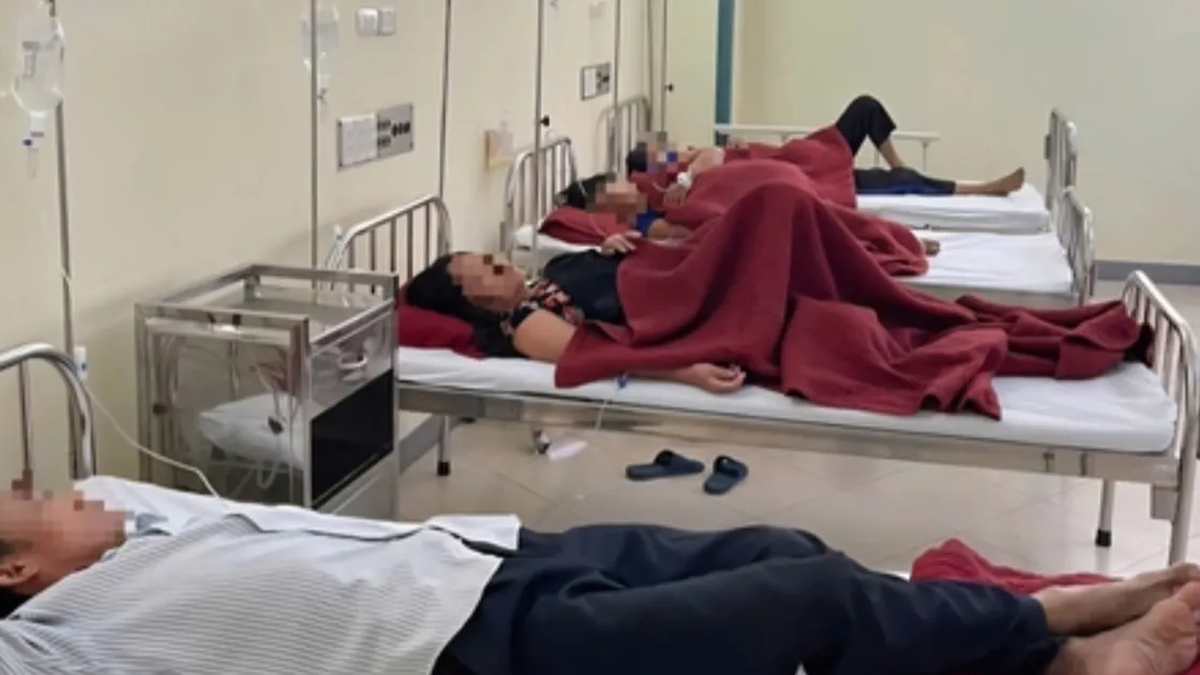
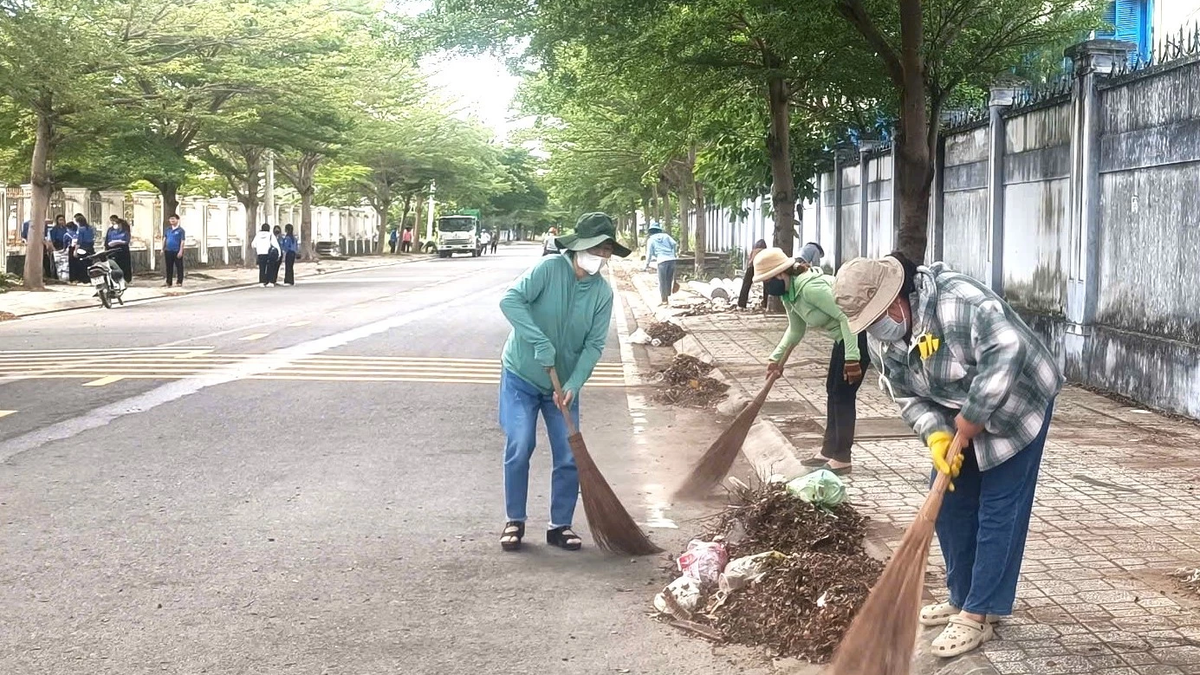






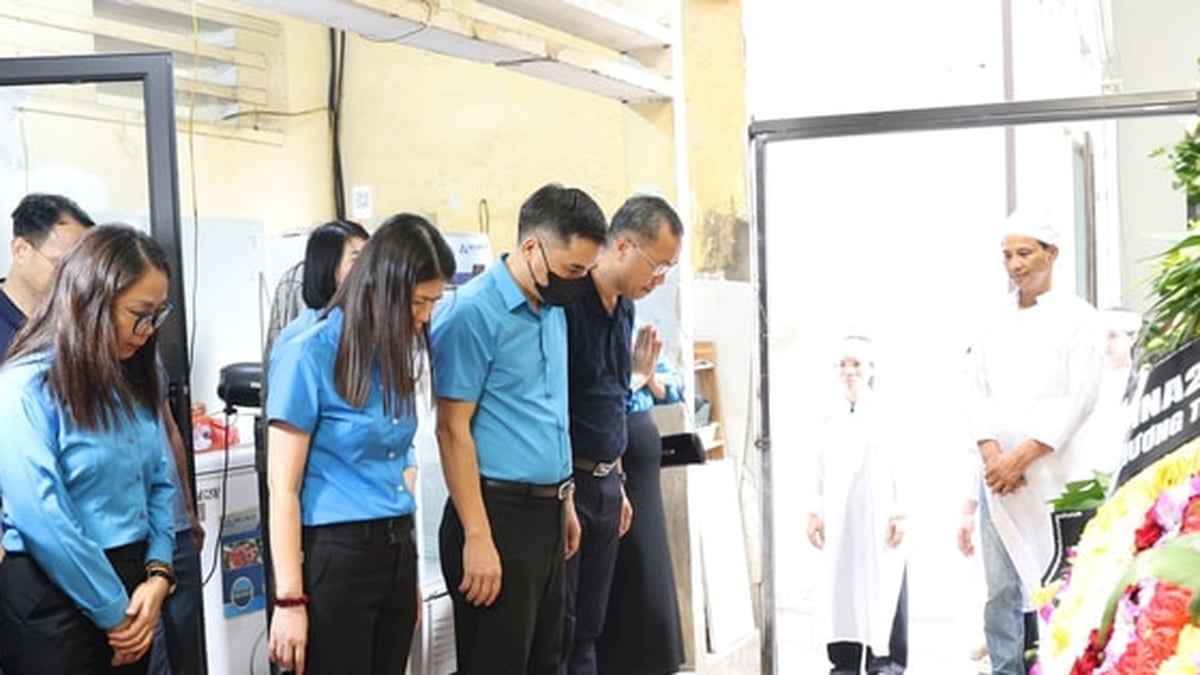

















![[Photo] National Assembly Chairman Tran Thanh Man visits Vietnamese Heroic Mother Ta Thi Tran](https://vphoto.vietnam.vn/thumb/1200x675/vietnam/resource/IMAGE/2025/7/20/765c0bd057dd44ad83ab89fe0255b783)



































































Comment (0)